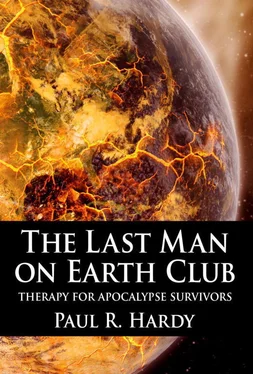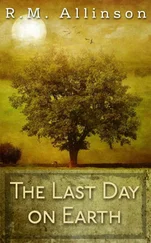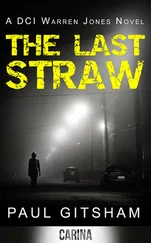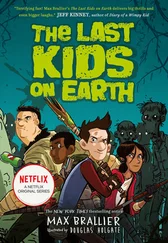There was a bitterness in his voice. “How do you feel about them now?”
He thought about it, then sighed. “They didn’t know any better. They were all dead a few years later.” The domesticated Pu were almost extinct by then. Most of them had been replaced by machines long since and the species allowed to dwindle to a race of servants and entertainers, before maltreatment and disease reduced their numbers almost to nothing.
“And there was nobody else?”
“No.”
“Not even anybody else from the Arctic?”
All the warmth fled from his face. “Yes.”
“Can you tell me about them?”
He picked up his tea, but the cup was empty. He put it back down again. “Qaliul came a couple of years later.”
I checked my notes. “I don’t have any record of… was this a man or woman?”
“Woman. Girl. She was fifteen. She was like me — they found her in the Arctic, only she survived longer on her own.” He smiled, a little proud. “Her whole tribe died of the sickness and she was immune like me, but she stayed free. She figured out they were using body heat to find us and made a cloak of beluga skin she could hide in. But they still found her. She didn’t know about satellites.”
“Her name’s different to all the others…”
“It was a Pu name. Her real name. They tried to call her Leu’la but she never answered to it.”
“What was your Pu name? Do you remember?”
He looked sad. “Atkariaq.”
“Would you rather we called you by that name?”
“No.”
“Why is that?”
“I’m not him anymore.”
I nodded. “What happened to Qaliul?”
“They took her away for the breeding programme. I heard she killed herself.”
“I’m sorry.”
I reached out a hand to comfort him, but he flinched and tensed up — his fear of physical contact coming out. I withdrew and he relaxed.
“Pew, you’re safe here. No one’s going to take you away. We’re only here for your therapy. That’s all we need to work on.”
He looked suspicious, but it was crumbling. “You’re like Shan’oui.”
A name I’d been hoping to get onto. “Gan Shan’oui? Your guardian?”
“Yeah. Guardian.” Was that an edge of sarcasm?
“Can you tell me about her?”
For a moment, he could not. And then a tear started in his eye and he wiped it away, ashamed to be crying.
“You don’t have to if you don’t want to.”
But he wanted to. “She looked after us. She was in charge of all the Pu at the zoo. It wasn’t her fault. She did everything she could, she tried to protect us, she tried to help, she couldn’t stop them when they came, and they put me in the programme, she, she—”
“Pew, slow down. It’s okay. We’ve got time.” He nodded. “Let’s start with something small. Just tell me what you remember from when you first got to the zoo.” He nodded. “Was she there from the start?”
“Yes.”
“What happened when you first met her?”
“I bit her.” He smiled a little. “Right on the hand. She was trying to pat me on the head and I bit her. Then I ran out and tried to escape. Once they brought me back, they sat me in her office and I don’t know what she said, I didn’t understand the language, but… I don’t know. She was nice. Most Soo weren’t.”
“She won your trust.”
“Yeah. She was good at that. She was… she was like people here. On Hub.” I smiled at the compliment. If it was a compliment.
“What else did she do?”
“She taught me, when I was older. I mean proper teaching, the same curriculum the Soo got. She was keen on education, especially for the ones who came from the Arctic. We weren’t like the others.”
“Is there anything you remember in particular?”
He thought about it. “She gave me a telescope. She showed me the stars, and the planets. Venus and Mars. Jupiter and Saturn. Mercury. She said someday the Pu would be free and maybe it would be out there when we all learned to fly in space…” He trailed off again. His eyes turned to sadness. “She was lying.”
“Why do you think that was?”
“She was just being kind. There’s nothing out there for anyone. There’s no freedom in the stars. You can’t even get there. You can’t go past lightspeed…”
“Did she tell you about us? About other universes?”
“Not then. I was only little. I think she just wanted me to have some hope.” He shook his head.
“How do you feel about that now?”
“It wasn’t her fault. She tried to protect us. It wasn’t her fault we all died.”
“There’s one other person I’d like to ask about.” He looked back, waiting for the question. “Do you remember Ley’ang?” The last female Pu. Brought to him in the last gasp of the breeding programme. One last attempt to show the IU that it could have worked, if they’d been luckier. “Pew? Do you remember?”
His answer was strangulated. “Yes.”
“Can you talk about her?”
“No.”
“Is there anything you can tell me?”
He stayed silent. He wasn’t going to go any further today.
“Okay, Pew, I’m sorry. Let’s leave it there for now.”
PSYCHOMEDICAL HISTORY — SUMMARY
DR. OLIVIA MORDLACK
When first discovered at Tringarrick, the remote scientific station where she had survived for twelve years since the beginning of the final revenant outbreak, Olivia suffered from malnutrition and bore a number of scars that indicated a very difficult life, including the loss of her left middle finger from a bite wound. She also carried the infection unique to her world which causes a process of revivification (or ‘revenation’) after death from other causes. Along with this, she had a form of liver cirrhosis caused not by alcoholism but by a food additive widely used in a failed attempt to eliminate the revenation bacterium. Most of her ailments were eventually cured by good nutrition and rest, while lyoxacin delivered via intracellular nanoparticle distribution was effective against the revenation bacterium. The cirrhosis could not be reversed, nor could a suitable liver donor be found. She continues to take regular medication to control the symptoms.
Psychologically, Olivia was extremely traumatised. After contact by the IU Exploration team, which brought news of her own status as the last survivor of her world, she shot two revenants kept in cages at the research station (presumed to be former colleagues), and then attempted suicide. She was prevented and conveyed to Grainger station and quarantine.
For nearly a year after arrival on Hub, she was withdrawn, taking little interest in her surroundings, and her physical recovery was slow as a result. She attempted suicide three times. Therapy proved to be virtually impossible. She was prescribed wide-human-spectrum antidepressants, which had no effect.
With time, she began to emerge from the depression and engage with therapy, but proved to be irritable and uncooperative. She is disruptive in group sessions, and was excluded from three groups she was assigned to. She shows little interest in resuming any kind of normal life, claiming it is impossible for her to update her scientific skills on an advanced world.
She suffers from poor sleep, which she claims is due to her cirrhosis, although the symptoms are entirely alleviated by medication. She also displays hypervigilance, especially at night. A cautious diagnosis of PTSD has been made, which she vehemently opposes despite the evidence.
She has formally requested euthanasia, but has not been willing to participate in the therapeutic programme prescribed for euthanasia candidates.
* * *
If the word ‘challenging’ had a human definition, Olivia would probably be it. She came in ill-tempered and sat down the same way. She hadn’t changed her clothes, nor had she washed them, despite the ease of the facilities she had access to. She hadn’t even washed her hair, and I suspected the shower in her en suite bathroom had gone completely unused. I offered her tea.
Читать дальше












